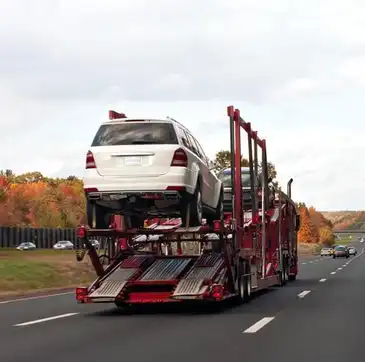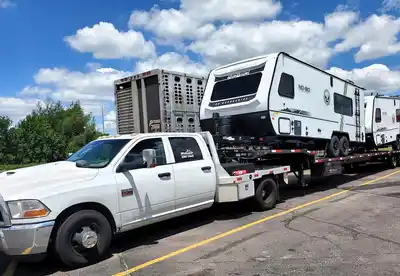Car shipping, a cornerstone of the global automotive trade, is more than just transporting vehicles. It’s a delicate dance of logistics, coordination, and above all, security. With vehicles often representing significant investments, ensuring their safe transit becomes paramount. Did you know that the global car shipping market is projected to reach a staggering $21 billion by 2027? Such growth underscores the industry’s vitality and the increasing demand for secure shipping solutions.
The Need for Security in Car Shipping
In the intricate web of global trade, car shipping stands out as a linchpin, connecting manufacturers to markets. But with this pivotal role comes immense responsibility. Every year, thousands of vehicles, each with its unique value, traverse continents. A single security lapse can lead to losses amounting to millions. Moreover, it’s not just about the financial implications. A security breach tarnishes a company’s reputation, potentially eroding years of trust built with clients. In an industry survey, 85% of clients stated that they’d switch shipping companies after a single security mishap. This statistic alone highlights the critical nature of security in car shipping. As the industry evolves, so does the sophistication of threats, making the implementation of robust security measures not just an option, but a necessity.
Physical Security Measures
In the realm of car shipping, physical security measures form the first line of defense against potential threats. These tangible barriers and systems are crucial in safeguarding valuable assets throughout the shipping process.
Secure Storage Facilities
Storage facilities are the heart of car shipping operations. These areas house vehicles awaiting transit, making them prime targets. Modern facilities now boast perimeter fencing, reinforced gates, and controlled access points. An interesting fact: some top-tier storage areas even employ biometric access controls, ensuring only authorized personnel can enter.
On-Site Security Personnel
While technology plays a pivotal role, human vigilance remains irreplaceable. On-site security personnel provide an immediate response to any anomalies. Trained guards can assess situations, make quick decisions, and act promptly. In many premium shipping hubs, guards undergo specialized training in vehicle protection, making them invaluable assets. Their presence alone can deter potential threats, solidifying their role in the security matrix.
Vehicle Tracking Systems
Real-time vehicle tracking has revolutionized car shipping security. Advanced GPS systems allow companies to monitor vehicle locations continuously. This constant surveillance ensures timely interventions in case of deviations. A 2020 industry report revealed that companies using advanced tracking reduced theft incidents by a whopping 60%. Such systems not only deter theft but also enhance operational efficiency.
Technological Security Measures
In today’s digital age, technological advancements play an indispensable role in bolstering car shipping security. These innovations offer precision, reliability, and adaptability, addressing the dynamic challenges of the industry.
Advanced Locking Systems
Gone are the days of traditional padlocks. The car shipping industry now embraces electronic locking systems, offering enhanced protection. These locks, often integrated with digital access codes or RFID tags, provide a higher security level. A fascinating tidbit: some state-of-the-art systems even employ cryptographic algorithms, making unauthorized access nearly impossible.
Surveillance Cameras
Visual monitoring is a game-changer in security. High-definition surveillance cameras, strategically placed, offer 24/7 oversight of facilities and transit areas. With features like night vision and motion detection, these cameras capture every detail. Recent studies indicate that facilities with visible camera systems experience a 40% reduction in unauthorized entries. This continuous vigilance is invaluable in preempting potential security breaches.
Alarm Systems
Alarm systems act as the industry’s watchdogs. Integrated with sensors, they detect unauthorized access or tampering, instantly alerting security personnel. Modern alarms don’t just sound off; they send real-time notifications to centralized control rooms. In a recent tech expo, a showcased alarm system boasted AI capabilities, distinguishing between routine disturbances and genuine threats, thus minimizing false alarms. Such innovations underscore the industry’s commitment to leveraging technology for optimal security.
Operational Security Measures
Operational security measures, often overshadowed by their physical and technological counterparts, are the backbone of a holistic security approach in car shipping. These procedures ensure that every cog in the operational wheel functions with security at its core.
Vetting of Employees
Every employee is a potential security gatekeeper. Rigorous background checks, coupled with periodic training, ensure staff integrity and competence. An industry survey revealed that companies with stringent vetting processes experience 30% fewer internal security breaches. This statistic underscores the critical role of a trustworthy workforce.
Regular Audits and Inspections
Audits are the industry’s health checks. Regular inspections ensure that security protocols are not just in place but are effectively implemented. These audits often employ third-party agencies for unbiased assessments. A notable fact: companies with quarterly audits have consistently reported higher stakeholder trust, emphasizing the audits’ role in building credibility.
Emergency Response Protocols
When a security breach occurs, time is of the essence. Well-defined emergency response protocols ensure swift action, minimizing potential damage. These protocols, often rehearsed in simulated drills, equip teams to tackle real-world threats efficiently. In a recent industry workshop, experts highlighted that companies with robust response protocols recover 50% faster post-breach, showcasing their undeniable importance.
Challenges in Implementing Security Measures
Implementing robust security in car shipping is no small feat. While the need is evident, the path is riddled with challenges. First, the financial implications can be daunting. Cutting-edge technology and trained personnel come at a premium. Interestingly, a 2022 report highlighted that initial security investments can account for up to 20% of a company’s annual budget. Balancing cost-effectiveness with optimal security remains a tightrope walk. Additionally, the dynamic nature of threats demands constant adaptation. What works today might be obsolete tomorrow. Lastly, integrating these measures without hampering operational efficiency is a complex task. It’s a continuous endeavor to ensure that security enhancements don’t inadvertently slow down processes.
Car shipping, a linchpin in the global automotive trade, hinges on trust. And at the heart of this trust lies security. While challenges abound, the industry’s commitment to safeguarding its assets—both vehicular and reputational—is unwavering. As technology advances and operational strategies evolve, security remains the steadfast anchor. A compelling fact to ponder: companies that prioritize security report a 70% higher client retention rate. This statistic not only underscores the tangible benefits of security investments but also the intangible value of trust in this intricate dance of logistics and coordination.



